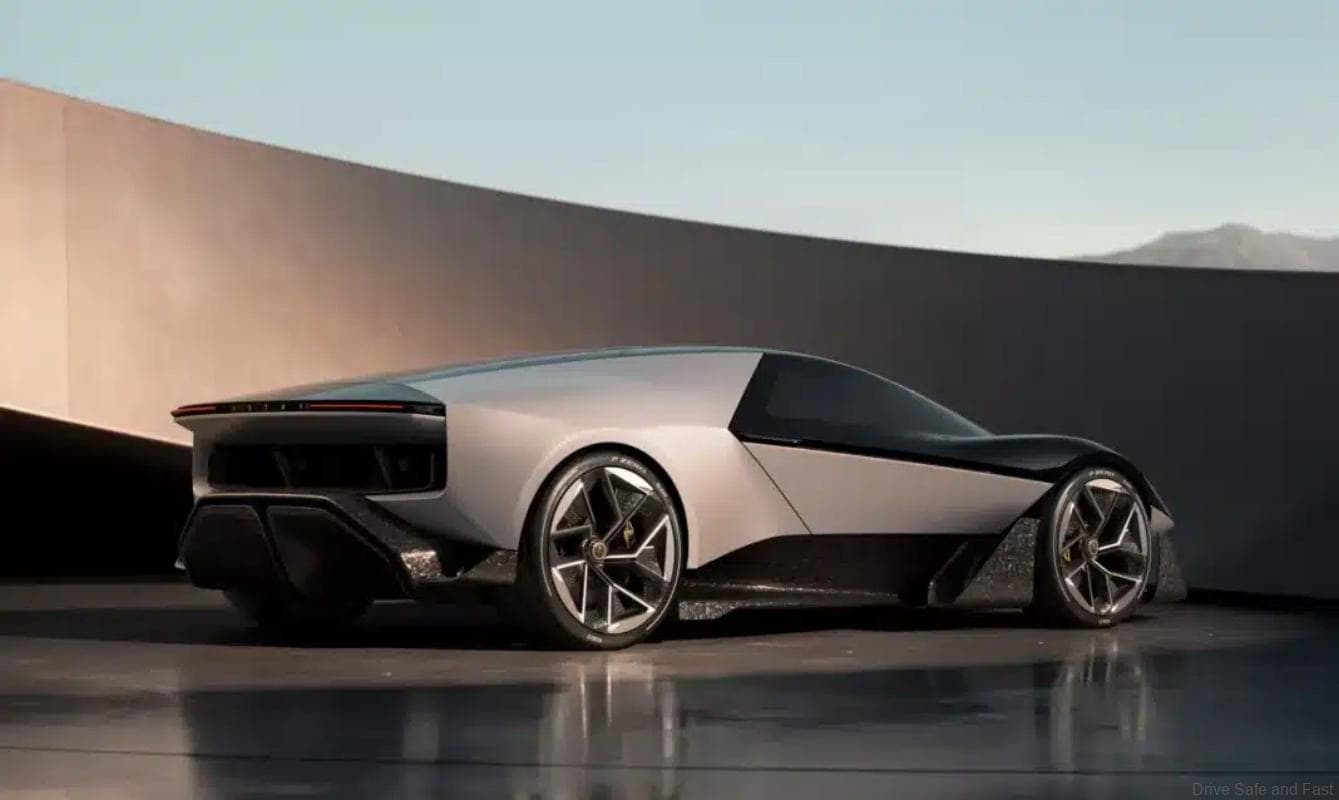Will this Lotus EV revolutionise the entire electrification game?
The Lotus Theory 1 represents a groundbreaking electric concept that outlines the future trajectory of the Chinese-British automaker, Lotus. This innovative vehicle emphasises Lotus’s renewed commitment to electric vehicles (EVs), particularly focusing on advanced software integration and autonomous driving capabilities.

The Theory 1 is equipped with the Lotuswear system, which features four deployable Lidars, the Nvidia Drive platform, and hardware that supports Level 4 autonomous driving. This striking three-seater supercar is constructed around a lightweight carbon fibre chassis, measuring 4,490mm in length, 1,140mm in height, and 2,000mm in width, with a wheelbase of 2,650mm.
Moreover, it weighs just under 1,600kg, showcasing Lotus’ expertise in lightweight engineering. Powering the Theory 1 is a robust 70 kWh battery, providing an impressive range of 402km under WLTP testing conditions. The vehicle is driven by dual electric motors that generate a staggering 987hp, allowing it to accelerate from 0 to 100 km/h in less than 2.5 seconds.



The Theory 1 features all-wheel drive (AWD) capabilities and can reach a top speed of 320 km/h (200 mph). Ben Payne, Vice President of Design at Lotus, remarked on the significance of the Theory 1, stating, “With Theory 1, we’ve built on everything Lotus has achieved so far in its 76-year history to push the boundaries for what it means to drive a performance vehicle.”
The autonomous driving features of the Theory 1 are also centred around the Nvidia Drive compute platform, which serves as the foundation for the Lotuswear technology. It boasts Level 4 hardware capabilities, complemented by a comprehensive 360-degree sensor suite that includes four deployable Lidars, six high-definition cameras, and a mix of long and short-range millimetre wave radars, along with ultrasonic sensors.

On top of that, Lotus is currently owned by the Chinese Geely Group, which oversees the mass production of its EVs in China. The company has already launched two electric models, the Lotus Eletre SUV and the Lotus Emeya sedan, both built on the EPA platform, an adapted version of Geely’s SEA platform.
Additionally, the limited-edition Lotus Evija supercar was unveiled in 2019, with eight units reportedly built by 2022 and deliveries commencing in 2023. While no specific production details for the Theory 1 have been disclosed, industry sources suggest that models based on this concept.

We got all this from CarNewsChina and their full article is linked here. Thank you CarNewsChina for the information and images.